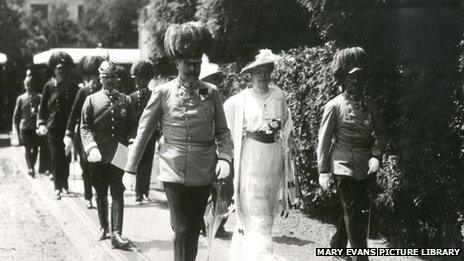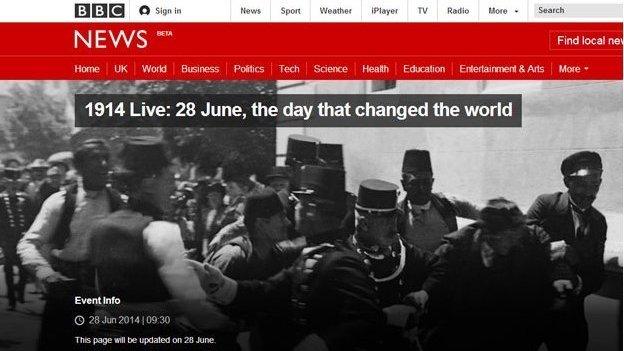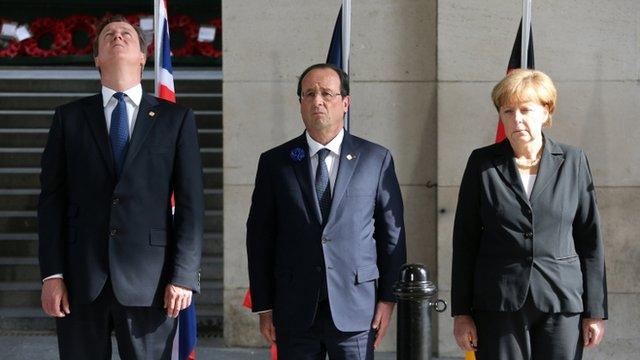Greater protection for ships lost in World War One
- Published
Tens of thousands of sailors and merchant navy personnel lost their lives in World War One but now the huge number of ships sunk in the conflict are to be offered increased protection under a UN agreement.

Divers visiting a hospital barge from World War One off Anzac Cove in the Gallipoli Peninsula, Turkey
Many of these wrecks are now threatened by salvage operations, deliberate destruction and looting.
But experts from 36 states meeting in Belgium have been hearing how the Unesco Convention on the Protection of Underwater Cultural Heritage, external will increase safeguards.
Introduced in 2001, the convention only applies to ships sunk at least 100 years ago.
With the centenary of World War One imminent, the agreement is soon to be extended to thousands of sites.
"It makes a real legal difference," Ulrike Guerin, of Unesco, told BBC News.
"It prevents the pillaging, which is happening on a very large scale, it prevents the commercial exploitation, the scrap metal recovery, and it will have regulations on the incidental impacts, such as the problem of trawlers going over World War One sites."
Metal attraction
The naval losses suffered by the belligerents during the Great War pale in comparison with the suffering in the trenches.
However, there were a number of large-scale engagements, including the Battle of Jutland and at Gallipoli.
The locations of many of the wrecks of these ships are known and have proved popular with recreational divers but also with commercial salvage companies.
The issue of dismemberment for salvage has become a major problem, especially as the price of metals has increased in recent years.
In 2011 Dutch ships dismantled the remains of three British cruisers sunk in 1914.
HMS Aboukir, HMS Hogue and HMS Cressy went down with the loss of 1,500 lives but the remains of the ships were destroyed for the copper and bronze they contained.
The Netherlands is said to be close to signing the convention and that would help prevent this type of action in the future.

Countdown to WW1



However, the increase in the number of sites that signatories of the convention will soon become responsible for raises concerns about resources.
"The heritage managers of countries like France and Belgium and the rest are now staring down the barrel of a major headache," said Dr Innes McCartney, who has led six research expeditions to the wrecks from the Battle of Jutland.
"There are war graves in the English Channel that in the past few weeks have been subject to salvage, within sight of land. This issue is ongoing. If you want to stop it, it's a matter of resource. Mouth is one thing but money is what makes the difference."

Many ships have come to the attention of salvage companies looking for valuable metals
While Britain has not signed the convention, the government has taken the view that it will observe the spirit of the agreement.
The researchers also want to compile a global inventory of ships lost in the war and carry out investigations on erosion. Apart from these steps, the scientists say the biggest issue is education.
"The very fact that there were twice as many merchant ships sunk in World War One than World War Two is a statistical fact that the vast majority of the public have no cognisance of," said Dr McCartney.
"One of the challenges is to show people what is there and that it is very much part of their cultural history and legacy."
As part of their efforts to increase recognition of the undersea heritage of World War One, Unesco is asking all ships in port and at sea to use commemorative signalling on Saturday evening.
Follow Matt on Twitter @mattmcgrathbbc, external.
- Published27 June 2014

- Published26 June 2014
